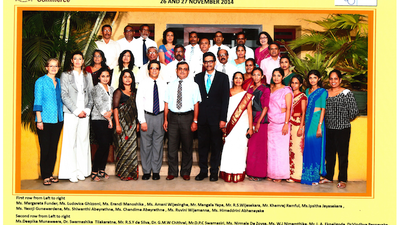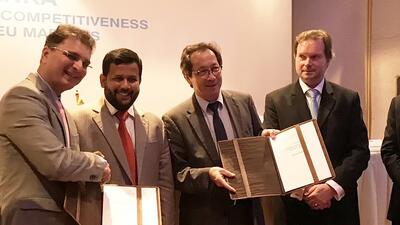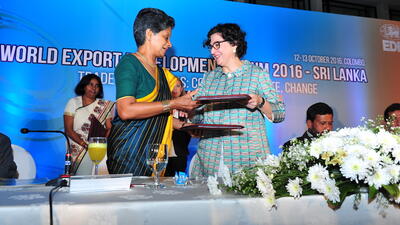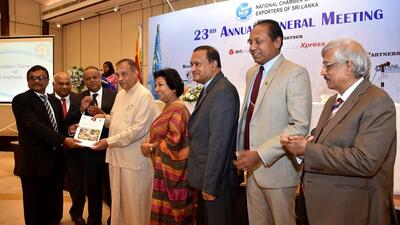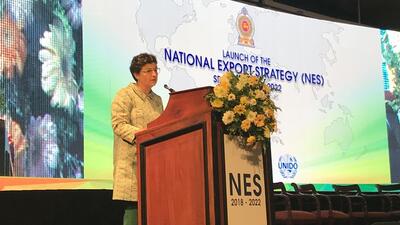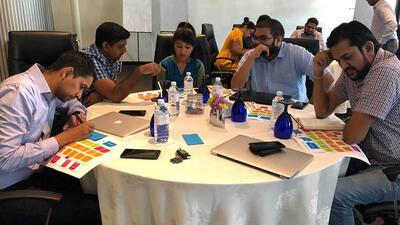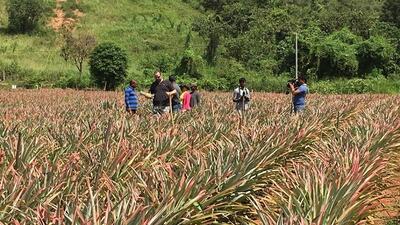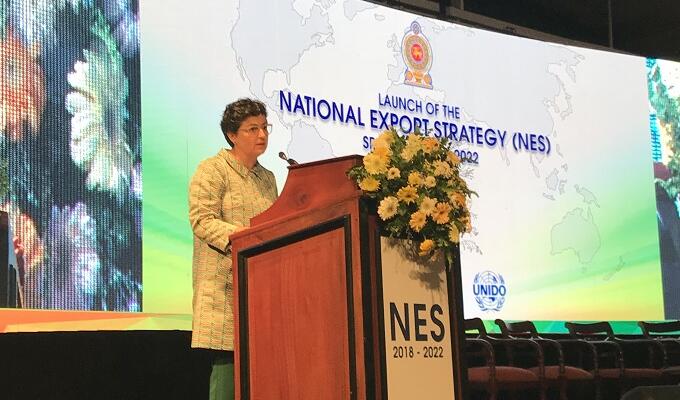

Sri Lanka unveils five-year National Export Strategy to accelerate growth and create higher income jobs (en)
(COLOMBO) – The Government of Sri Lanka today unveiled the National Export Strategy (NES), a blueprint for achieving increased exports, enhanced regional cooperation and job creation. Alongside other national initiatives such as Enterprise Sri Lanka and Vision 2025, the Strategy is an important addition to the country’s development agenda and its goal of becoming a leading Asian export hub driven by innovation and investment. Technical assistance for developing the NES was provided through the EU-Sri Lanka Trade Related Assistance project funded by the European Union.
The five-year Strategy aims to enable Sri Lanka to reach its goal of $28 billion in exports by 2022. It benefits from the input of more than 600 public and private-sector stakeholders across Sri Lanka to reflect their export ambitions.
The Strategy sets out specific priority actions and investments to address competitiveness constraints, modernise regulatory systems for improved efficiency, and boost Sri Lankan industries in order to increase exports. It also sets targets to improve opportunities for Sri Lanka’s micro, small and medium-sized enterprises (MSMEs) and exporters in regional and global trade.
Speaking at the unveiling of the National Export Strategy in Colombo, Malik Samarawickrama, Sri Lanka’s Minister of Development Strategies and International Trade, said: ‘The NES further strengthens our ongoing shift in the economic growth model from one that was heavily dependent on debt-fuelled public infrastructure spending, to growth driven more by private enterprises, exports and foreign direct investment.’
Paul Godfrey, Charge d'affaires of the European Union to Sri Lanka and the Maldives, said: ‘This National Export Strategy is vital to Sri Lanka’s trade infrastructure and will consolidate and expand the country’s reach in the region and in European markets. I am sure this Strategy will help Sri Lanka take advantage of GSP+ by both stimulating growth and increasing the prosperity of the peoples of this island.’
ITC Executive Director Arancha González said: ‘The Strategy is a tool to transform the trade landscape of Sri Lanka. By helping to improve the trade environment and by supporting greater local value addition trade could support the creation of better quality jobs’.
The National Export Strategy will help the development of new exporters and support the growth of traditional export industries. It identifies six sectors to ensure more value addition and facilitate greater access to regional and global markets. They are: information technology and business process management (IT-BPM); spices and concentrates; wellness tourism; processed food and beverages; boat building; and electronics and electrical components.
The Strategy also focuses on four cross-cutting areas, which impact all exporting enterprises, namely the improvement of island-wide logistics services, national quality infrastructure, innovation and entrepreneurship and access to trade information and promotion services.
Ahead of the launch, the Government allocated resources in the 2018 national budget to implement parts of the Strategy. It has established public-private advisory committees to drive implementation of the Strategy, and set up a dedicated NES Management Unit to guide implementation planning.
Minister Sujeewa Senasinghe, State Minister of International Trade and Navigator of the National Export Strategy, said: ‘As Sri Lanka’s export basket diversifies and with renewed interests in newer products in the local markets, this strategy will help to market Sri Lanka to foreign investors. I am confident therefore that the National Export Strategy will contribute to increase exports and catalyse a spirit of entrepreneurship.’
The National Export Strategy design and management process is led by the Ministry of Development Strategies and International Trade (MoDSIT) and the Sri Lanka Export Development Board (EDB). Technical support has been provided by the International Trade Centre (ITC) within the framework of the EU-Sri Lanka Trade Related Assistance project funded by the European Union. The National Quality Infrastructure Strategy was designed as part of the project in close partnership with the United National Industrial Development Organisation (UNIDO).
About ITC – The International Trade Centre is the joint agency of the World Trade Organization and the United Nations. ITC assists small and medium-sized enterprises in developing and transition economies to become more competitive in global markets, thereby contributing to sustainable economic development within the frameworks of the Aid-for-Trade agenda and the United Nations’ Sustainable Development Goals. For more information, visit www.intracen.org. Follow ITC on Twitter | Facebook | LinkedIn | Instagram
International Trade Centre
Jarle Hetland, Media Officer
P: + 41 22 730 0145
M: + 41 79 582 9180
E: hetland [at] intracen.org (hetland[at]intracen[dot]org)





